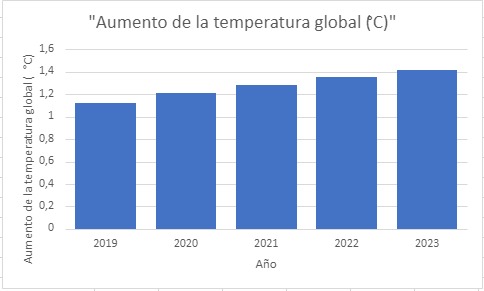
Basics Statistics about Global Warming

Global warming, caused mainly by greenhouse gas emissions, has led to a 1.1°C increase in the global average temperature since the 19th century. The last six years have been the warmest on record, with 2020 as the warmest year. CO2 emissions have reached a record 38 billion tons in 2023, with China being the largest emitter, followed by the US and the EU. These emissions intensify the greenhouse effect, accelerating global warming. Projections indicate that the temperature could rise between 2.7°C and 3.6°C by the end of the century. This has led to serious consequences, such as rising sea levels, extreme weather events and loss of biodiversity. To mitigate this, urgent measures are needed, such as emissions reductions, climate change adaptation and international cooperation. It is imperative to act now to protect our planet and ensure a sustainable future for generations to come. Rising global temperatures are a real and urgent threat to the planet and its inhabitants. Individual and collective action is essential to take drastic measures and build a more sustainable future. The responsibility falls on all of us to protect our planet for generations to come.

References:
- PCC — Intergovernmental Panel on Climate Change. (s.f.). IPCC — Intergovernmental Panel on Climate Change. https://www.ipcc.ch/
- World Meteorological Organization (WMO): https://theomm.com/
- United Nations Framework Convention on Climate Change (UNFCCC): https://unfccc.int/
- ¿What is the global warming? (s.f.). National Geographic. https://www.nationalgeographic.es/medio-ambiente/2024/01/efectos-cada-vez-menos-inviernos-nevados
